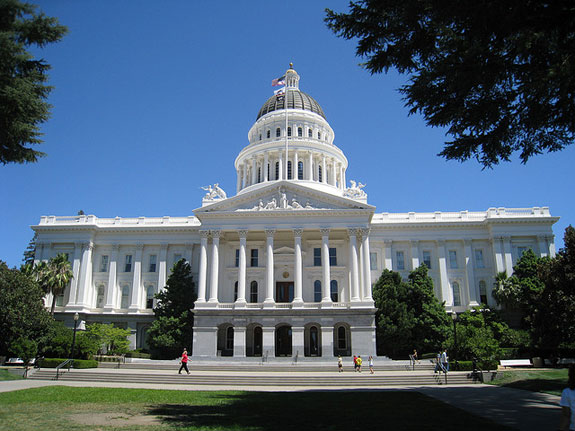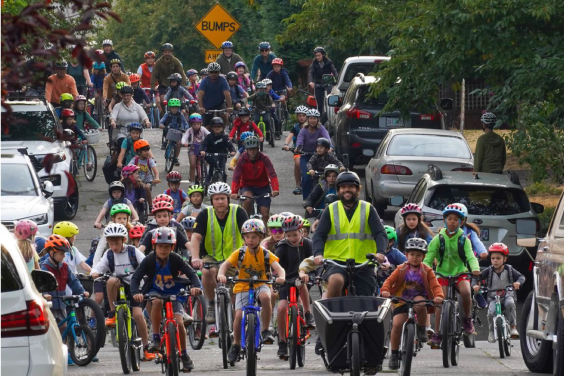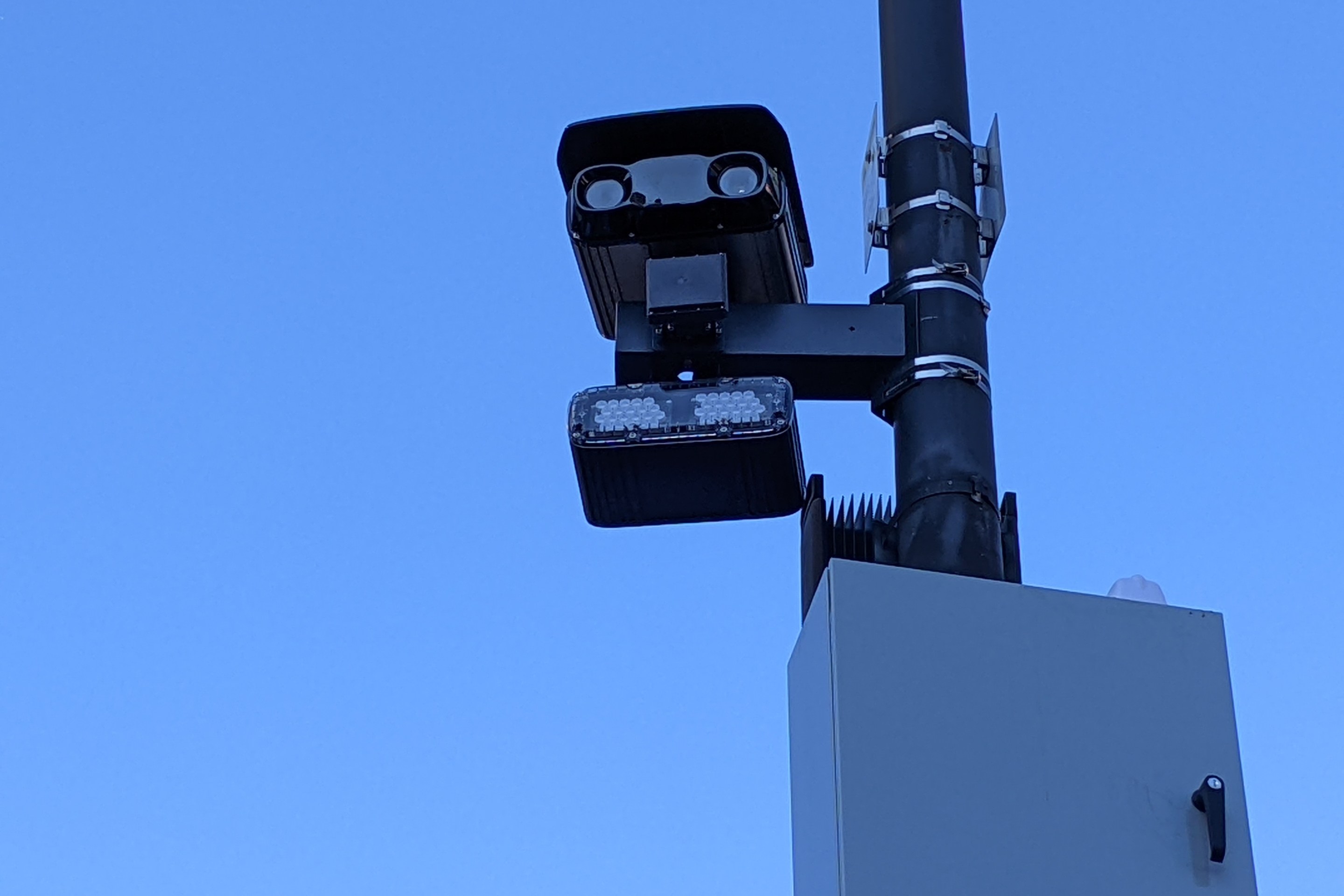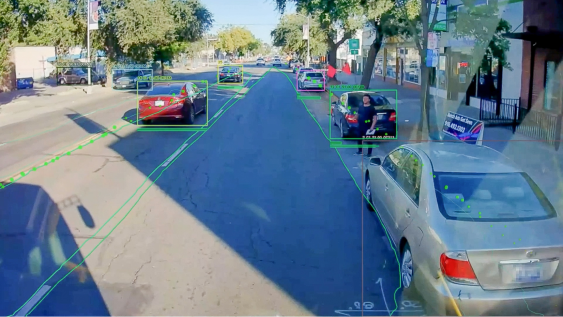Note: GJEL Accident Attorneys regularly sponsors coverage on Streetsblog San Francisco and Streetsblog California. Unless noted in the story, GJEL Accident Attorneys is not consulted for the content or editorial direction of the sponsored content.
The California state legislature has until tomorrow - Friday September 6 - to amend bills, and until Friday the 13th for both the Senate and the Assembly to approve them. Governor Newsom then has a month after that to either sign or veto.
Complete Streets
Somehow the Complete Streets bill made it out of the Assembly Appropriations Committee last week, after the committee was forced to recess for over an hour while raucous anti-vaccination protesters were cleared from the room. The bill's author, Senator Scott Wiener (D-San Francisco), accepted amendments that somewhat reduce the cost of the bill while retaining its main thrust: to require Caltrans to include safety considerations for bike riders and pedestrians when it does maintenance work on state highways that run through cities and towns.
Many of those "highways" are main streets lined with businesses, shops, and housing where people need to walk and bike. Caltrans' focus on driving has made it difficult for the department to see and embrace their role in supporting other modes.
The bill was amended to remove a requirement that Caltrans create a Complete Streets Asset Branch. The branch would have tracked and managed bike lanes, crosswalks, and similar facilities that Caltrans would be called on to include in its repair plans.
S.B. 127 would still require the California Transportation Commission add complete streets elements to its highway asset management plan, however. It also calls for "a process for community input to prioritize the implementation of safe and connected facilities for pedestrians, bicyclists, and transit users." And it would still require performance measures to track the condition and number of bicycle and pedestrian facilities as well as how accessible highways are for people on foot, bike, and transit.
The bill is basically a common sense requirement for Caltrans to follow its own existing Complete Streets policies. S.B. 127 passed the Appropriations Committee even though it was opposed by the Department of Finance, for whom any money spent beyond a certain threshold seems to be a problem. The bill now faces a vote on the Assembly floor.
The California Bicycle Coalition, one of the bill's sponsors - along with California Walks, Safe Routes to Schools National Partnership, AARP, and the American Heart Association - urge supporters to call their Assemblymember to urge S.B. 127 passage. They have a handy page on their website to make those calls easy.
Making Intersections Safer for Bikes
A.B. 1266 has already been signed by the Governor. Basically it requires Caltrans to come up with guidance on how to let bicyclists know when they are allowed to go straight through an intersection when a right-turn-only lane requires vehicles to turn.
The author, Assemblymember Robert Rivas (D-Hollister), said in a press release that “A.B. 1266 will make our roadways safer for everyone by matching street design with the already practiced, safe behavior of cyclists at busy intersections. I’m committed to making sure Californians have safe, healthy, and non-polluting transportation choices as we expand our efforts to combat climate change.”
“This bill authorizes a bicyclist to travel straight through a right- or left-turn-only lane and requires Caltrans to develop standards for lane striping, pavement marking, and appropriate regulatory signs to implement this bill. It will save lives,” said Dave Snyder, director of the California Bicycle Coalition.
For those who think this is a minor achievement: it is. "We should not have to run a bill to get Caltrans to include really basic design in the Highway Design Manual," said Snyder.
But sometimes you have to. Maybe one day, with a new Caltrans director, major work to win a minor adjustment in statute will no longer be necessary.
Vouchers for E-bikes
The Clean Cars 4 All Program, run by the State Air Resources Board, gives out monetary incentives for people to replace old polluting cars with cleaner, more efficient vehicles. For years the program has given out money to help buy electric cars, but has also offered the alternative of a voucher for a "mobility option" in lieu of an expensive vehicle. That voucher could be used for public transit passes or to join a car-share enterprise.
S.B. 400, from Senator Tom Umberg (D-Santa Ana), would expand the use of the vouchers to e-bikes and bike-share. It is an acknowledgement of the ability of bikes - the original zero-emission vehicles - to help reduce greenhouse gas emissions and provide a real alternative to buying a new car.
S.B. 400 has passed both the Senate and the Assembly, and has been forwarded to the Governor.
Amtrak Buses
Twenty years ago, lobbyists convinced the California legislature that Amtrak's buses, which provide connections from its stations to cities near and far, was a form of unfair competition for private bus companies. So it banned the sale of Amtrak bus tickets to anyone who was not also taking a train ride as part of the trip.
That means that Amtrak, a rail company, runs buses with decreasing federal subsidies that do not fill to capacity, and that empty out as they get farther from their point of origin. It also means that potential bus passengers throughout the state - notably in many places not served by private bus companies - are left without any transit options to travel out of their cities, unless they also buy a train ticket they don't need.
Senator Ben Allen (D-Santa Monica) wrote S.B. 742 to fill Amtrak buses, both to serve California residents by offering more transit options and to help Amtrak connecting buses operate more cost-effectively.
This bill is waiting for a vote on the Assembly floor.






